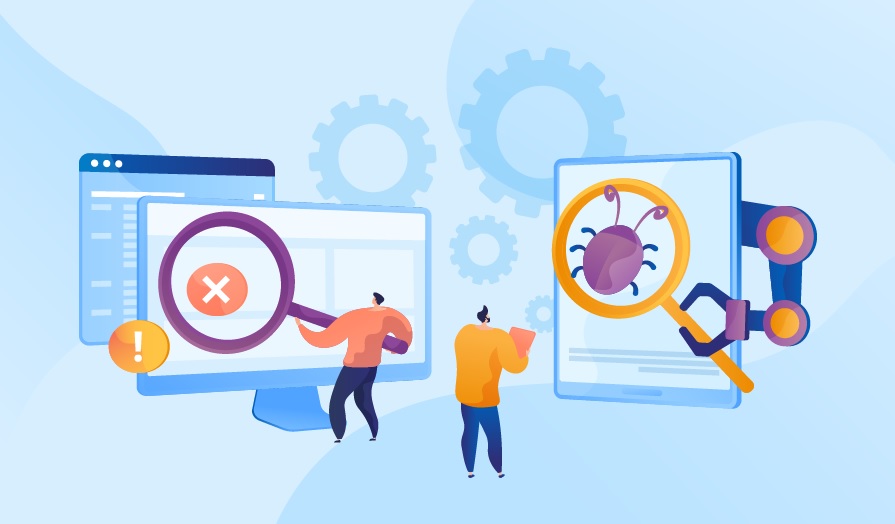
ASPs are third-party entities that manage and distribute software-based applications, services, and solutions to customers over a wide area network (WAN), typically the internet, from a central data center. By delivering access to applications this way, small to medium enterprises can eliminate the time and costs associated with installing, managing, and supporting new applications. ASPs offer a contractual service to deploy, host, manage, and rent access to applications from centrally managed facilities, thus allowing clients to focus on their core business operations without worrying about the technical aspects of software management.
The ASP ecosystem is a multifaceted landscape where digital solutions converge to redefine how applications are delivered, managed, and accessed. Within this interconnected setting, businesses and users undergo a transformative collaboration, harnessing technologies to simplify processes and enhance the efficiency of application services.
The ecosystem includes Infrastructure as a Service (IaaS), which provides the foundational elements necessary for application deployment, such as servers, storage, and networking components. Platform as a Service (PaaS) offers infrastructure and a platform for streamlining application development, testing, and deployment procedures. Software as a Service (SaaS), a subset of ASP, directly delivers software applications to end-users, encompassing a broad spectrum of applications from email services to intricate business solutions.
Advantages of ASPs
- Rapid Deployment: The backend of the application is already up and running, enabling faster deployment.
- Usability and Reliability: High software usability and reliability are key benefits.
- Automated Upgrades: ASPs can track and push software upgrades without customer interference.
- IT Workload Reduction: Much of the IT workload is managed by the ASP.
- Cost Management: Shifts costs from capital expenditures to operating expenditures for accounting purposes.
- Access to High-End Applications: Provides access to applications that might otherwise be unaffordable.
- Guaranteed Performance and Uptime: Ensures reliable service delivery.
Enhanced Security: Implements robust security measures.
Disadvantages of ASPs
- Security Risks: Using virtual servers introduces significant security concerns.
- Integration Challenges: Difficulty in integrating customer software with ASP software.
- High Costs: Some ASP services can be expensive.
- Customization Limitations: Limited ability to customize software applications.
- Network Reliability: Poor network quality can affect service availability.
Common Misconceptions about ASPs
Addressing misconceptions about ASPs is crucial for ensuring that businesses understand the true value and capabilities of these service providers. Misconceptions can lead to misinformed decisions, potentially hindering businesses from leveraging the full benefits of ASPs. Here are some common misconceptions and the realities that dispel these myths:
Misconception 1: Limited Scalability
A prevalent misconception is that ASP solutions lack the scalability needed to support large enterprises, restricting their use to small and medium-sized businesses. However, this is far from the truth. Modern ASP offerings are designed with scalability in mind, capable of accommodating the needs of businesses of all sizes, from small boutiques to expansive retail chains. Scalability is a core feature of contemporary ASP solutions, allowing them to grow alongside the client’s business. Advanced ASPs utilize cloud infrastructure and microservices architectures that can seamlessly expand resources and capabilities to handle increasing workloads and user demands.
Misconception 2: Security Concerns
Another widespread misconception is that ASPs pose significant security risks, with some believing that data managed by third-party providers is more vulnerable to breaches and cyber-attacks. While security is a legitimate concern, leading ASPs adhere to stringent security protocols and industry standards to ensure robust data protection and privacy. These providers invest heavily in advanced security measures, including encryption, multi-factor authentication, regular security audits, and compliance with regulations such as GDPR and HIPAA. By leveraging these high standards, ASPs often provide better security than many businesses could achieve on their own, ensuring that sensitive information is well-protected against threats.
Misconception 3: Lack of Customization
A common belief is that ASPs offer limited customization options, forcing businesses to use generic, one-size-fits-all software solutions. This misconception stems from the early days of ASPs when customization capabilities were indeed limited. Today, however, reputable ASPs provide highly customizable solutions that can be tailored to meet the unique requirements of different businesses. These providers offer flexible application configurations, allowing clients to adjust features and functionalities to align with their specific operational needs and business processes. Customization options include user interface adjustments, integration with other software systems, and bespoke feature development, enhancing the operational efficiency and customer experiences of retail businesses.
Addressing These Misconceptions
To effectively address and dispel these misconceptions, it’s important for ASPs to educate potential clients about the advancements in ASP technologies and the robust capabilities they offer. Clear communication about the security measures in place, the scalability of their solutions, and the extensive customization options available can help build trust and confidence among businesses considering ASP services. Demonstrations, case studies, and client testimonials can also be powerful tools in showcasing the real-world effectiveness and reliability of modern ASP solutions.
Types of Application Service Providers
ASPs can be categorized into five main types: Enterprise ASPs deliver high-end business applications such as CRM, ERP, and ECM systems. Local/Regional ASPs focus on smaller businesses in specific geographical areas, offering tailored applications. Specialist ASPs provide niche applications for industries like healthcare and education. Vertical Market ASPs support specific industries such as healthcare. Volume Business ASPs supply general small to medium-sized businesses with prepackaged application services in volume.
Prominent examples of ASPs include Salesforce, which offers cloud-based CRM systems; Microsoft Office 365, a suite of office applications accessible via the internet; Zoho, which provides a range of business, collaboration, and productivity applications; and Slack, known for its collaborative communication tools.
3 Reasons Why Application Service Providers Look To Automation
Application service providers (ASPs) across the US are increasingly automating the application lifecycle to reduce costs and improve speed for clients. According to a report “Next-gen Application Development &Maintenance (ADM) Services 2019” published by Information Services Group (ISG), a leading global technology research and advisory firm, this trend is both significant and irreversible due to the numerous benefits it offers.
1. Cost Reduction and Speed Improvement
The primary reason ASPs are turning to automation is to cut costs and accelerate their time to market. Automation reduces the need for manual intervention, which not only lowers labor costs but also minimizes errors and enhances efficiency. Esteban Herrera, partner and global leader of ISG Research, underscores that automation benefits both large and small clients by optimizing application development and maintenance processes. This results in faster delivery of services, enabling ASPs to meet client demands more swiftly and effectively.
2. Advanced Technological Integration
Another critical reason for the shift towards automation is the integration of advanced technologies into application development and maintenance platforms. Modern ASPs are leveraging libraries, microservices, the cloud, low-code programming, test automation, and bots for script writing to streamline their operations. Maintenance platforms are utilizing cognitive and artificial intelligence to automate tasks such as ticket classification, troubleshooting, and script execution for service delivery. This integration allows for more sophisticated and efficient management of applications, making the entire process more seamless and reliable for clients.
3. Enhanced Workforce Focus
Digital labor has evolved significantly, moving beyond basic bot-based automation to include diagnostic, predictive, and remedial capabilities using accumulated intelligence. This advancement allows the current Application Development and Maintenance (ADM) workforce to focus on higher-value tasks that require human expertise, such as addressing complex issues and developing innovative solutions. Herrera emphasizes that this shift not only improves operational efficiency but also enhances the quality of services provided by ASPs. By offloading routine tasks to automated systems, ASPs can better utilize their human resources for strategic initiatives.
Additional Insights from the Report
The ISG report also identifies a rising demand for hybrid cloud environments among enterprise ADM clients. Many enterprises are developing cloud-native applications for the public cloud while maintaining a pool of applications in the private cloud for security and regulatory reasons. Agile development has become the standard for new application development, though traditional methods still account for the majority of revenue. The Scaled Agile Framework (SAFe) is the most popular development framework, and DevSecOps is emerging to address application security concerns.
Takeaway
In the digital age, ASPs are crucial for businesses seeking to leverage advanced software without the complexities of hosting and maintaining them. By offering a variety of services tailored to different needs, ASPs streamline operations and foster innovation and growth. Whether for small businesses or large corporations, there is an ASP to meet every requirement. Automation further enhances these benefits by reducing costs, improving speed, integrating advanced technologies, and allowing the workforce to focus on higher-value tasks.





















![How to stop unwanted robocalls and text messages [Updated]](https://roboticsbiz.com/wp-content/uploads/2019/11/robocall-218x150.jpg)
![20 use cases of Robotic Process Automation (RPA) in banking [Updated]](https://roboticsbiz.com/wp-content/uploads/2019/10/automation4-218x150.jpg)